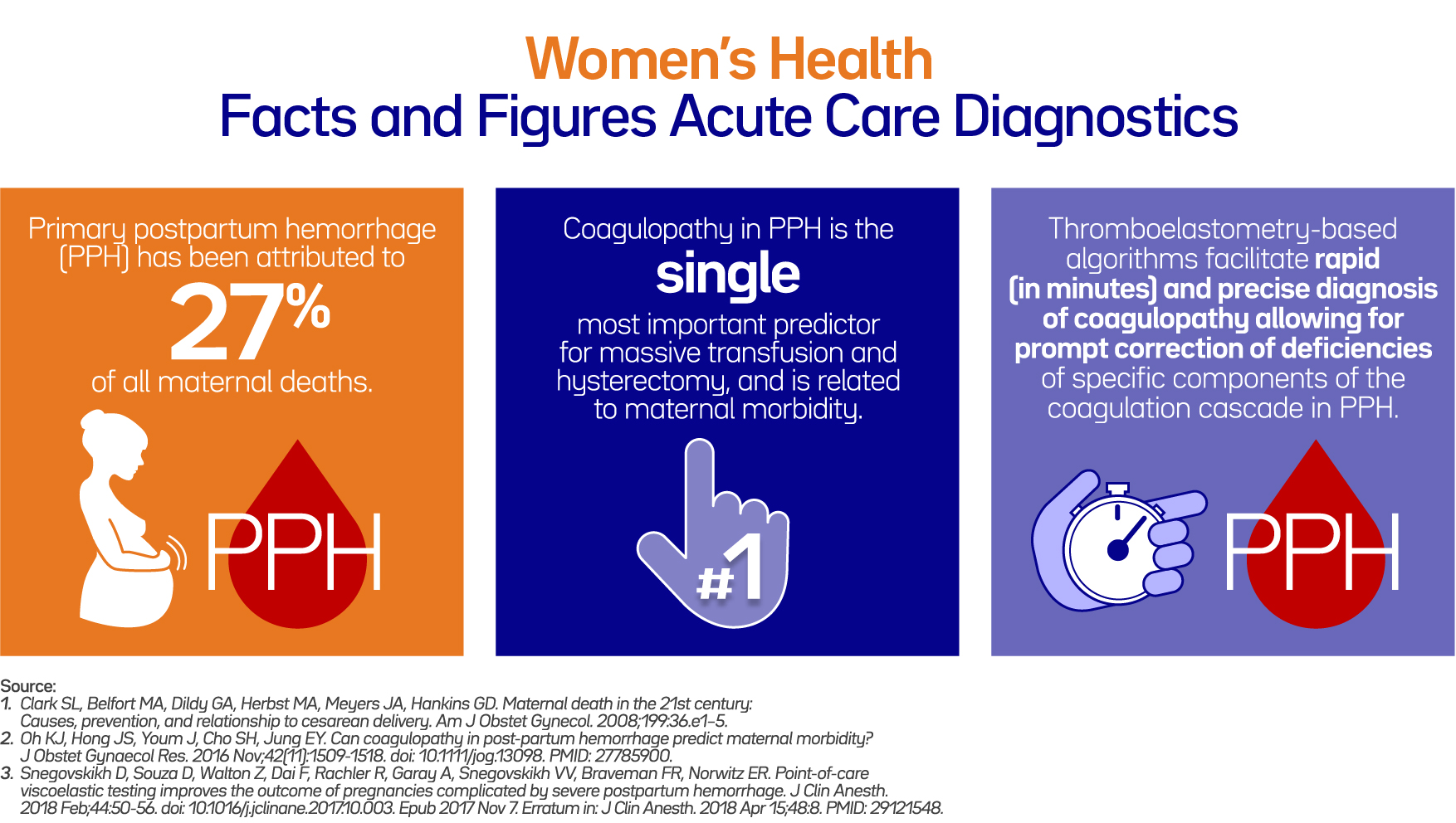Empowering Women and Girls: Awareness and Knowledge on management of Postpartum Hemorrhage (PPH) and associated maternal mortality and Morbidity.
Empowering women involves providing them with the knowledge and resources necessary to make informed decisions about their health and well-being. One critical aspect of women's health is the treatment of postpartum hemorrhage (PPH), a leading cause of maternal mortality worldwide. By educating women about PPH and its management, particularly through the use of viscoelastic testing assays, we can significantly reduce maternal morbidity and mortality.
Postpartum hemorrhage occurs when a woman experiences excessive bleeding following childbirth, posing a serious threat to her life if not promptly addressed. Knowledge about the signs and symptoms of PPH empowers women to recognize the condition early and seek timely medical assistance. Additionally, understanding the various treatment options available, including the use of viscoelastic testing assays, allows women to advocate for the most effective interventions.
Viscoelastic testing assays, such as rotational thromboelastometry provide real-time assessment of a patient's coagulation status, enabling healthcare providers to tailor treatment strategies accordingly. By guiding the administration of blood products and coagulation factors, these assays help to rapidly control bleeding and prevent complications.

Empowering women with knowledge about PPH and the use of viscoelastic testing assays not only improves maternal outcomes but also fosters a sense of autonomy and confidence in managing their health. Through education and access to appropriate resources, we can empower women to take charge of their well-being and reduce the burden of maternal morbidity worldwide.

